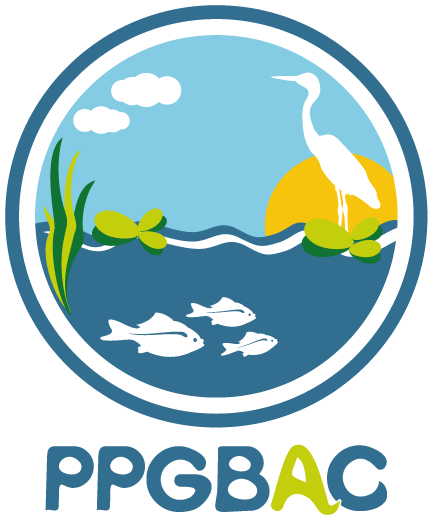Curricular structure
The curricular structure has mandatory and elective courses
For the Doctorate, 86 credits are required for the tittle, which 46 credits of those in courses (16 credits in mandatory courses and 30 credits in elective courses) and 40 credits in the elaboration of the thesis. The maximum time for its realization is of 48 months
For the Master's degree, 44 credits are required for the tittle, which 24 credits of those in courses (16 credits in mandatory courses and 8 credits in elective courses) and 20 credits in the elaboration of the Dissertation. The maximum time for its realization is of 24 months.
Mandatory Courses
Qualification Seminary (Master’s Degree)
Teaching Internship (Master’s Degree)
Dissertation Work (Master’s Degree)
Teaching Internship I and II (Doctoral Degree)
Thesis Work (Doctoral Degree)
Scientific Methodology and Elaboration of Projects (Master’s/Doctoral Degree)
Sampling Delineation and Data Analysis (Master’s/Doctoral Degree)
Continental Aquatic Ecosystems (Master’s/Doctoral Degree)
Field Limnology (Master’s/Doctoral Degree)
Conservation of Continental Aquatic Environments (Master’s/Doctoral Degree)
Elective Courses
Biology of Continental Microalgae
Biology of Freshwater Mammals
Biology of Amphibia
Biology of Waterbirds
Biology of Aquatic Macrophytes
Biology of Populations
Bio-Ecology of Benthic Macroinvertebrates and Phytofauna
Ecological Risk Assessment in Ecotoxicology
Ecological Relationships of Plants and Animals in Aquatic Environments
Animal Symbioses in Continental Aquatic Environments
Reproduction Biology of Vertebrates
Theoretical and Instrumental Molecular Ecology
Applied Ecotoxicology in Continental Aquatic Environments
Stable Isotopes Uses in Ecology
Introduction to R Environment
Multivariate Statistics
Microbial Aquatic Ecology
Ecophysiology of Continental Aquatic Plants
Writing and dynamics of scientific production
Ecology, Conservation and Restoration of Wetlands
Special Topics courses are commonly offered, including contents such as scientific writing.
Students can also achieve credits with “Complementary Activities”, such as co-supervising of undergraduate students, guided by their formal tutor, articles published during the program and related to the topic of Dissertation/Thesis, or with abstracts published in scientific events.

